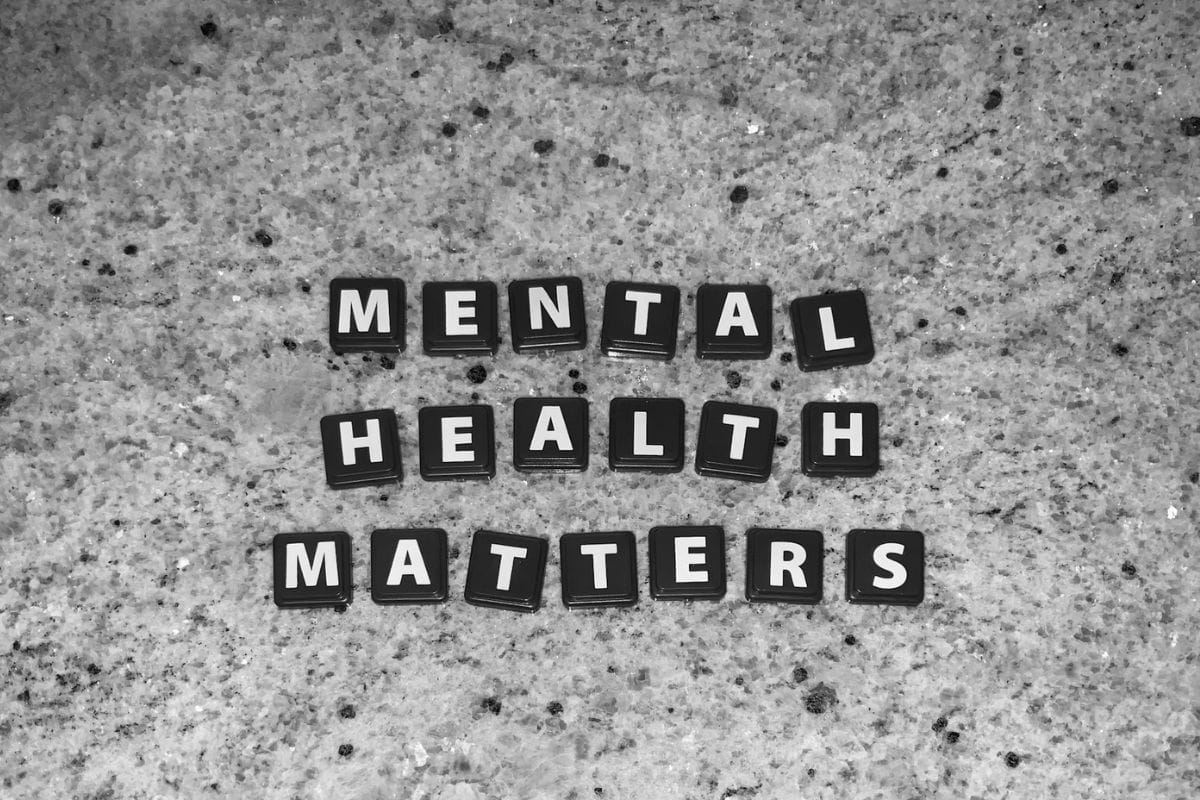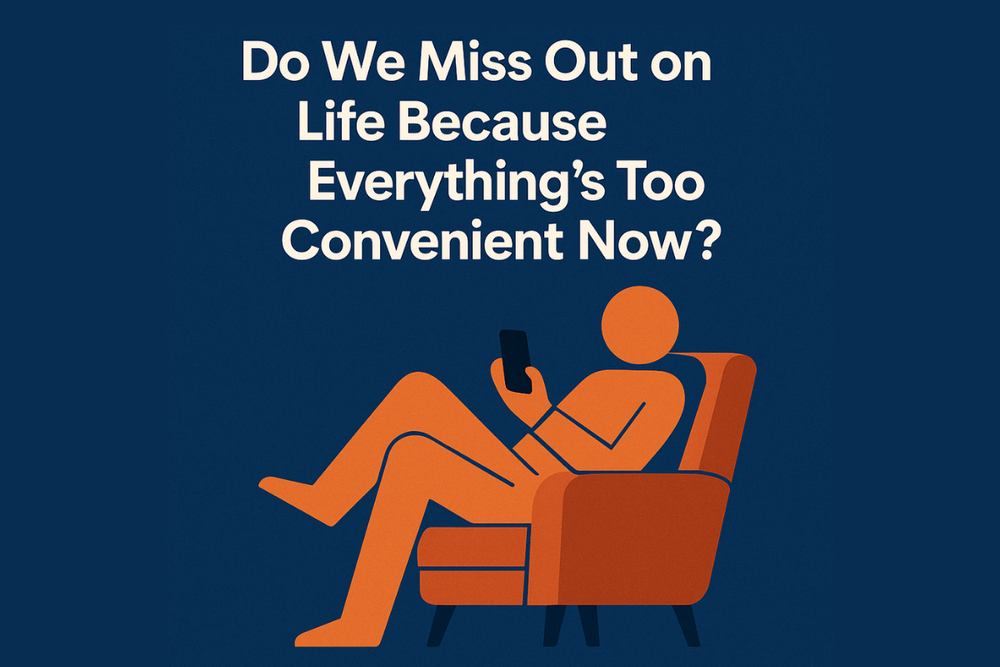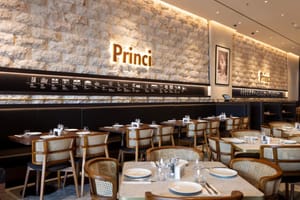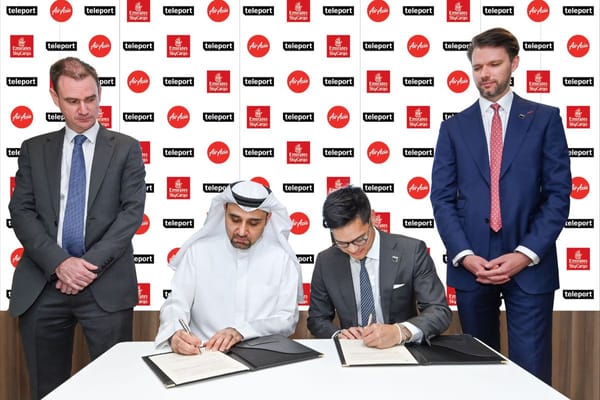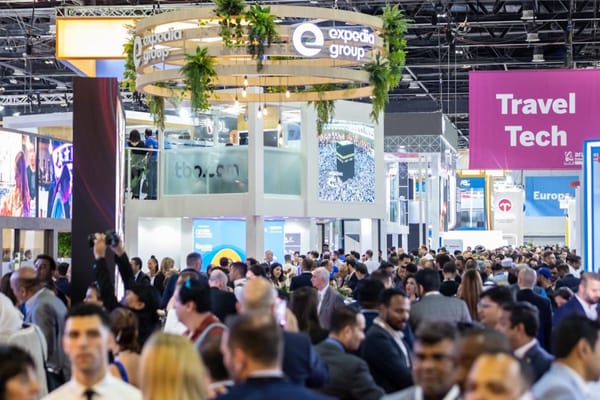Imagine waking up in a home where your thermostat has already adjusted to your preferred morning temperature, your coffee brews itself, and your virtual assistant reads out your day's schedule—all without you lifting a finger. This isn't a scene from a futuristic novel; it's the reality for many today. The average household now contains over 25 connected devices, seamlessly integrating technology into every facet of daily life.
While these advancements have undeniably enhanced efficiency and comfort, they may also inadvertently diminish the richness of our human experiences. The convenience that technology offers often replaces activities that once provided personal satisfaction and a sense of accomplishment. For instance, the act of cooking a meal from scratch not only nourishes the body but also fosters creativity and mindfulness. Yet, with the rise of food delivery apps, many opt for the quickest option, potentially missing out on these enriching experiences.
Moreover, our brains are wired to seek ease and immediate gratification. This preference can lead to a reliance on convenient solutions, sometimes at the expense of deeper engagement and fulfillment. As we increasingly choose the path of least resistance, it's worth questioning: Are we trading meaningful experiences for momentary comfort?
In this article, we’ll explore how our craving for ease might be reshaping the way we live, connect, and find meaning—often in ways we don’t even notice. From the comforts of automation to the quiet trade-offs we make every day, we’ll examine if the very things making life easier are also making it feel a little less alive.
Historical Context: From Manual Labor to Automation
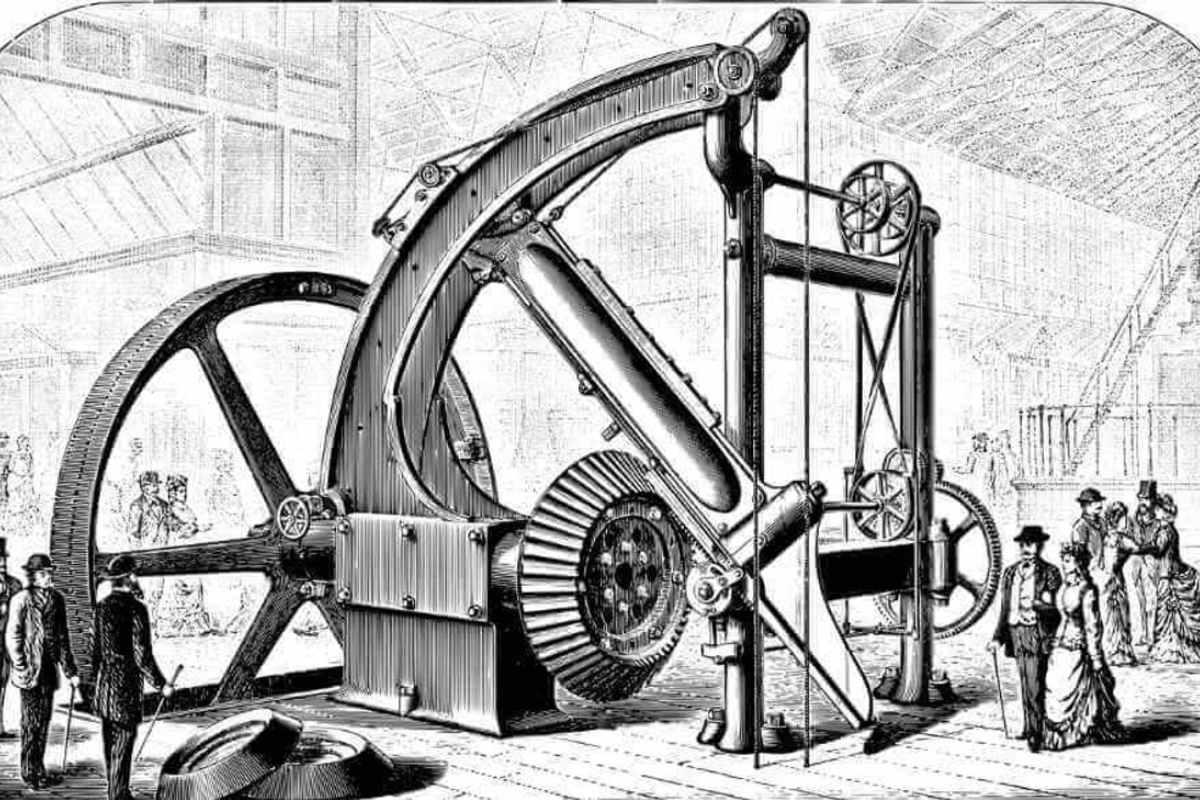
Dubai's rapid transformation from a modest trading port to a global metropolis exemplifies the embrace of technological advancement. The city's commitment to innovation is evident in its ambitious goals, such as the Dubai Smart City initiative, aiming to digitize all government services and infrastructure. This vision has led to the adoption of cutting-edge technologies, reshaping how residents interact with their environment.
Modern-Day Examples: Convenience at Our Fingertips
Autonomous Delivery Robots
In a bid to revolutionize last-mile delivery, Dubai has introduced autonomous delivery robots, known as "talabots," in partnership with Talabat UAE. These robots are currently being piloted in Dubai's Silicon Oasis, serving approximately 300 homes and completing around 100 deliveries per week. The initiative aims to reduce emissions and promote sustainable technologies.
The UAE's smart home market is experiencing significant growth, projected to reach a revenue of USD 6,078.8 million by 2030, with a compound annual growth rate of 27.5% from 2025 to 2030. This surge is driven by the increasing adoption of smart devices, including voice-activated assistants, automated lighting, and intelligent security systems, enhancing the convenience and efficiency of daily living.
Self-Checkout in Retail
Retailers in the Middle East are increasingly adopting self-checkout technologies to streamline the shopping experience. Companies like MishiPay are leading this transformation, offering solutions that allow customers to scan and pay for items using their smartphones, reducing wait times and enhancing operational efficiency.
Psychological Underpinnings: The Brain's Bias for Ease
Our brains are inherently wired to seek the path of least resistance, a survival mechanism that conserves energy. This inclination makes us naturally gravitate towards convenient solutions, often at the expense of engaging in more effortful but potentially rewarding activities. The immediate gratification provided by modern conveniences can reinforce this tendency, potentially diminishing our capacity for patience and resilience.
Moreover, the constant availability of convenient options can lead to decision fatigue, reducing our ability to make thoughtful choices and potentially impacting our overall well-being. Understanding this psychological drive is crucial in recognizing how convenience shapes our behaviors and experiences in the modern world.
As Dubai continues to integrate advanced technologies into daily life, it is essential to balance the benefits of convenience with the preservation of meaningful human experiences. Reflecting on how these innovations influence our behaviors and interactions can help ensure that progress enhances, rather than diminishes, the richness of our lives.
The Hidden Costs of a Convenience-Driven Lifestyle

Erosion of Human Connection
In our increasingly digital world, face-to-face interactions are often replaced by screen time, leading to a phenomenon known as "phubbing"—snubbing someone in favor of a mobile phone. This behavior can significantly impact relationships, causing feelings of neglect and reducing overall relationship satisfaction. Studies have shown that individuals who experience phubbing report lower levels of trust and intimacy in their relationships.
The constant presence of smartphones during social interactions can lead to a sense of being undervalued, as attention is diverted away from the person physically present. This shift in communication dynamics underscores the importance of mindful device usage to maintain healthy interpersonal connections.
Diminished Sense of Accomplishment
The convenience of outsourcing tasks—be it through food delivery apps, automated home systems, or digital assistants—can inadvertently reduce opportunities for personal growth and satisfaction. Engaging in manual activities, such as cooking, gardening, or crafting, not only provides a sense of accomplishment but also contributes to mental well-being. Physical activities have been associated with improved mood, reduced stress, and enhanced cognitive function. The act of completing tangible tasks offers immediate feedback and a sense of purpose, elements often lacking in automated processes. By relying heavily on convenience, individuals may miss out on these enriching experiences that foster personal development and emotional fulfillment.
Mental Health Implications
While technology offers unparalleled connectivity, it also presents challenges to mental health. Excessive screen time and constant digital engagement have been linked to increased levels of anxiety, depression, and sleep disturbances. The phenomenon of "doomscrolling," or the compulsive consumption of negative news online, can exacerbate feelings of helplessness and stress. Moreover, the pressure to maintain a constant online presence can lead to burnout and a diminished sense of self-worth. It's crucial to recognize these potential pitfalls and establish boundaries to ensure that technology serves as a tool for enhancement rather than a source of psychological strain.
The Paradox of Constant Connectivity
Despite being more connected than ever, many individuals report feelings of loneliness and isolation—a paradox of our digital age. Research indicates that increased social media use can lead to heightened feelings of loneliness, as online interactions often lack the depth and authenticity of face-to-face communication. This "connection paradox" highlights the importance of balancing digital engagement with real-world relationships. By fostering genuine connections and prioritizing in-person interactions, individuals can mitigate the adverse effects of excessive digital reliance and cultivate a more fulfilling social life.
In embracing the conveniences of modern technology, it's essential to remain cognizant of the potential costs to our social connections, personal fulfillment, and mental health. By striking a balance between digital engagement and real-world experiences, we can harness the benefits of technology while preserving the richness of human interaction.
The Paradox of Choice and Overabundance
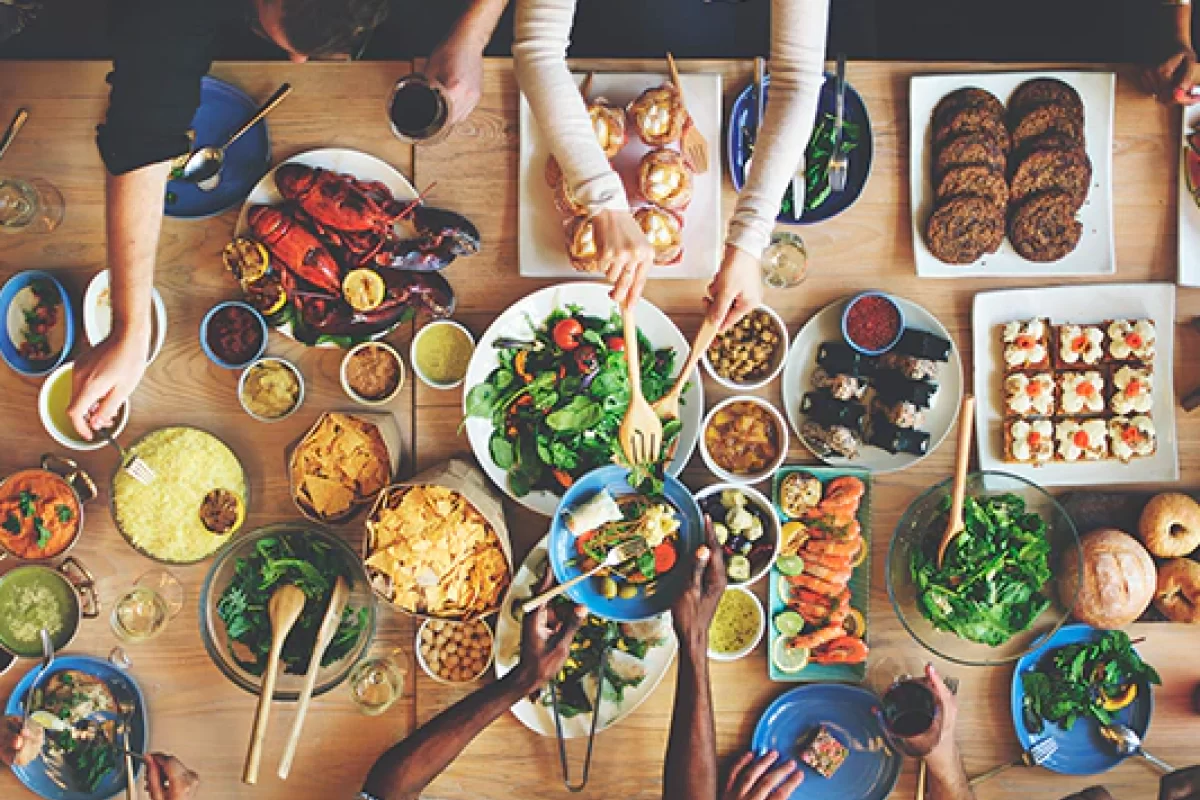
In our modern world, the abundance of choices and conveniences is often celebrated as a hallmark of progress. However, this overabundance can have unintended psychological effects that may diminish our overall well-being.
Decision Fatigue: When Too Many Options Overwhelm
The phenomenon of "choice overload" suggests that an excess of options can lead to increased stress and decreased satisfaction. Research indicates that when individuals are presented with too many choices, they may experience decision fatigue, leading to feelings of anxiety and regret over their selections.
This mental exhaustion can impair our ability to make decisions effectively, often resulting in impulsive choices or decision paralysis. Over time, the constant need to make decisions, even minor ones, can contribute to burnout and reduced mental resilience.
Devaluation of Experiences: The Diminishing Returns of Abundance
An abundance of experiences, while seemingly beneficial, can paradoxically reduce our ability to appreciate them. A study found that individuals who had a wealth of desirable life experiences were less inclined to savor simpler pleasures, suggesting that overexposure to extraordinary experiences may diminish the enjoyment of everyday moments.
This phenomenon, known as the "hedonic treadmill," implies that as people accumulate more wealth or experiences, their expectations and desires increase, leading to no permanent gain in happiness.
Impact on Gratitude and Mindfulness: Losing Sight of Simple Joys
The constant availability of conveniences can hinder our capacity for gratitude and mindfulness. Studies have shown that practicing gratitude and mindfulness can significantly enhance psychological well-being, promoting resilience and reducing stress.
However, when life becomes too convenient, we may overlook these practices, leading to a decreased appreciation for the present moment and the simple pleasures it offers.
While the conveniences of modern life offer numerous benefits, it's essential to recognize and mitigate their potential psychological costs. By being mindful of our choices and cultivating gratitude for the simple aspects of life, we can navigate the paradox of choice and abundance more effectively, leading to greater overall well-being.
Environmental and Societal Impacts of a Convenience-Driven Lifestyle in Dubai
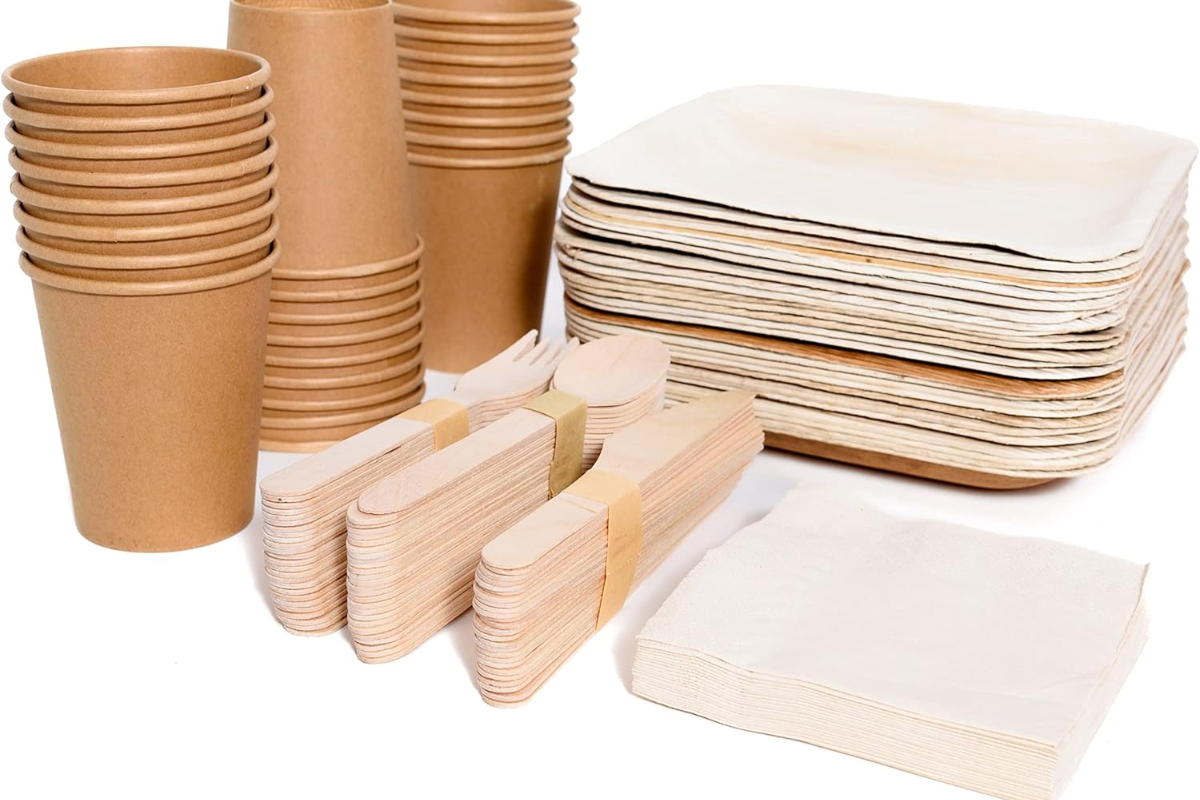
Environmental Degradation: The Hidden Cost of Convenience
Dubai's rapid urbanization and consumer-driven lifestyle have led to a significant increase in single-use plastic consumption. A study by Emirates Nature-WWF revealed that the UAE generates approximately 14 million tonnes of plastic waste annually, with the average person consuming 94 kg of plastic each year.
In response, the Dubai Executive Council implemented Decision No. 124 of 2023, effective from January 1, 2024, to regulate single-use products. This decision aims to encourage sustainable behavior and promote the use of recycled materials, aligning with the principles of a circular economy.
Despite these efforts, the environmental impact remains significant. For instance, in Abu Dhabi, there is an average of one discarded plastic bottle for every two meters of coastline, highlighting the pervasive nature of plastic pollution.
Cultural Homogenization: Global Brands and the Erosion of Local Traditions
The influx of global brands and the pursuit of convenience have contributed to cultural homogenization in Dubai. The dominance of international brands often leads to a standardized set of values and consumer preferences, which can overshadow local traditions and cultural practices.
However, efforts are being made to preserve Emirati culture. Abu Dhabi's cultural policy focuses on sustaining local traditions and heritage, promoting itself as the custodian of true Emirati and Arab identity.
Additionally, festivals such as the Al Dhafra Festival and Sharjah Heritage Days celebrate local crafts and traditions, enhancing the understanding of the UAE's rich history.
Economic Disparities: Unequal Access to Convenience
Dubai's rapid urbanization has led to significant socio-economic disparities. While high-income residents enjoy access to modern amenities and services, low-wage migrant workers often face sub-standard living conditions and limited access to resources.
This disparity is further exacerbated by the digital divide. While the UAE has made strides in digital transformation, unequal access to digital technologies persists, creating a "Digital Gap" that hinders the ability of certain communities to benefit from advancements in the digital age.
Addressing these disparities requires informed policy approaches that balance economic ambitions with equitable resource distribution and access to conveniences.
Reclaiming Depth in the Age of Convenience

In an era dominated by convenience, reclaiming depth in our daily lives requires intentional choices that foster engagement, mindfulness, and sustainability. By embracing practices that may seem "inconvenient," we can enrich our experiences and well-being.
Intentional Inconvenience: Rediscovering the Joy of Effort
Engaging in activities that require effort, such as cooking from scratch or walking instead of driving, can enhance our connection to daily life. Cooking, for instance, has been shown to improve mental health by reducing stress and promoting mindfulness. A systematic review highlighted that cooking interventions positively influence psychosocial outcomes, suggesting benefits beyond nutrition.
Incorporating such practices into our routines encourages a deeper appreciation for the processes involved, fostering a sense of accomplishment and presence.
Digital Detoxes: Reconnecting with the Physical World
Taking periodic breaks from technology, or digital detoxes, can significantly improve mental health. Benefits include reduced stress, improved focus, better sleep, and enhanced relationships. By setting boundaries with our devices, we allow ourselves to be more present and engaged with our surroundings.
Implementing simple strategies, such as designated screen-free times or engaging in offline activities, can help restore balance and mindfulness in our daily lives.
Mindful Consumption: Prioritizing Quality and Sustainability
Mindful consumption involves making deliberate choices that emphasize quality, sustainability, and ethical considerations over speed and convenience. This approach encourages us to value the origins and impacts of our purchases, leading to more sustainable and fulfilling consumption habits.
For example, the slow fashion movement advocates for clothing produced with respect for people and the environment, promoting timeless styles and durable materials. By choosing products that align with these values, we contribute to a more sustainable and conscientious lifestyle.
Convenience has reshaped how we live, making everyday tasks faster, smoother, and more accessible than ever before. In a city like Dubai, where technology is deeply integrated into daily life, these innovations offer undeniable advantages—from delivery robots and smart homes to fully digital government services.
But as life becomes easier, it’s also worth asking what we might be losing. Research continues to show that doing things the “hard way”—cooking from scratch, taking a walk, or simply slowing down—can provide deeper satisfaction and long-term mental well-being. These seemingly minor actions contribute to focus, creativity, and a stronger sense of self-worth.
This isn’t a call to reject convenience entirely. Rather, it’s a reminder to be more intentional. Consider which conveniences genuinely add value and where they might be replacing meaningful effort or connection. Taking occasional breaks from screens, making room for real conversations, or engaging in tasks that require effort can help bring a greater sense of presence and fulfillment to everyday life.
In the end, the goal isn’t to resist progress but to shape it in a way that keeps us grounded. A life filled with ease is not necessarily a life well lived unless we choose to bring depth back into the moments convenience has made forgettable.
Also Read:



